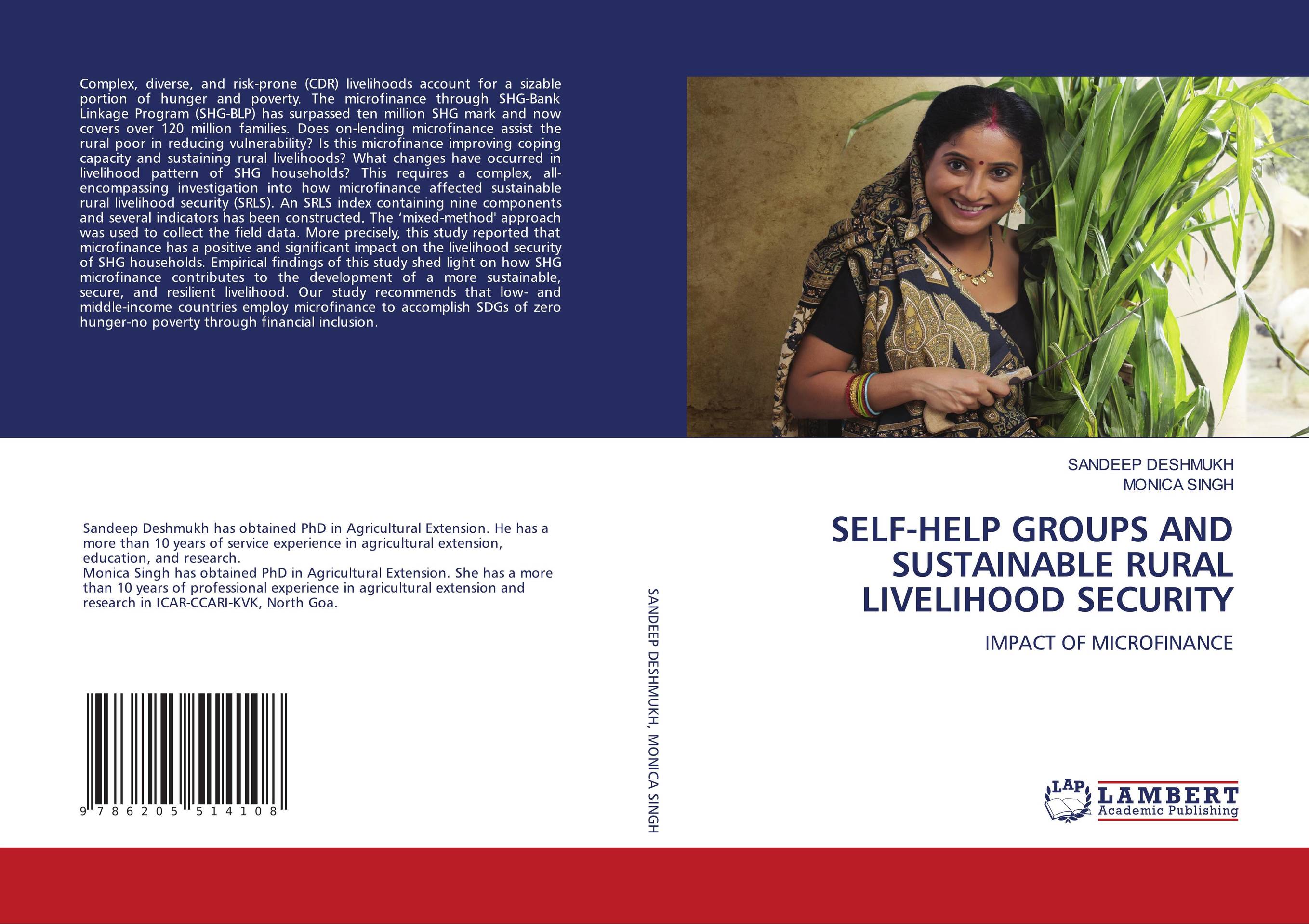| Поиск по каталогу |
|
(строгое соответствие)
|
- Профессиональная
- Научно-популярная
- Художественная
- Публицистика
- Детская
- Искусство
- Хобби, семья, дом
- Спорт
- Путеводители
- Блокноты, тетради, открытки
SELF-HELP GROUPS AND SUSTAINABLE RURAL LIVELIHOOD SECURITY. IMPACT OF MICROFINANCE

В наличии
| Местонахождение: Алматы | Состояние экземпляра: новый |

Бумажная
версия
версия
Автор: SANDEEP DESHMUKH and MONICA SINGH
ISBN: 9786205514108
Год издания: 1905
Формат книги: 60×90/16 (145×215 мм)
Количество страниц: 264
Издательство: LAP LAMBERT Academic Publishing
Цена: 55622 тг
Положить в корзину
| Способы доставки в город Алматы * комплектация (срок до отгрузки) не более 2 рабочих дней |
| Самовывоз из города Алматы (пункты самовывоза партнёра CDEK) |
| Курьерская доставка CDEK из города Москва |
| Доставка Почтой России из города Москва |
Аннотация: Complex, diverse, and risk-prone (CDR) livelihoods account for a sizable portion of hunger and poverty. The microfinance through SHG-Bank Linkage Program (SHG-BLP) has surpassed ten million SHG mark and now covers over 120 million families. Does on-lending microfinance assist the rural poor in reducing vulnerability? Is this microfinance improving coping capacity and sustaining rural livelihoods? What changes have occurred in livelihood pattern of SHG households? This requires a complex, all-encompassing investigation into how microfinance affected sustainable rural livelihood security (SRLS). An SRLS index containing nine components and several indicators has been constructed. The ‘mixed-method' approach was used to collect the field data. More precisely, this study reported that microfinance has a positive and significant impact on the livelihood security of SHG households. Empirical findings of this study shed light on how SHG microfinance contributes to the development of a more sustainable, secure, and resilient livelihood. Our study recommends that low- and middle-income countries employ microfinance to accomplish SDGs of zero hunger-no poverty through financial inclusion.
Ключевые слова: Self-Help Groups, Sustainable Rural Livelihood Security, Microfinance, impact, vulnerability, coping capacity, livelihood capitals, RURAL WOMEN, Attitude



